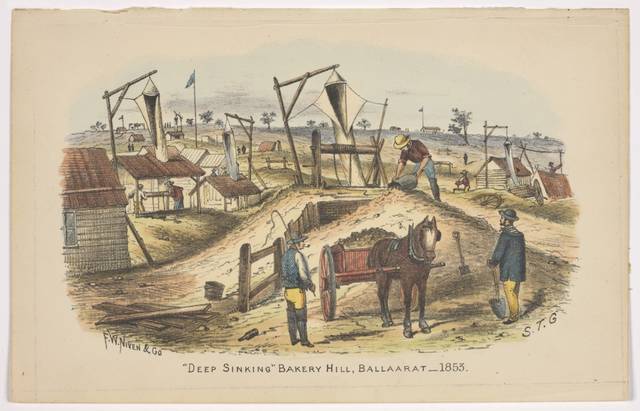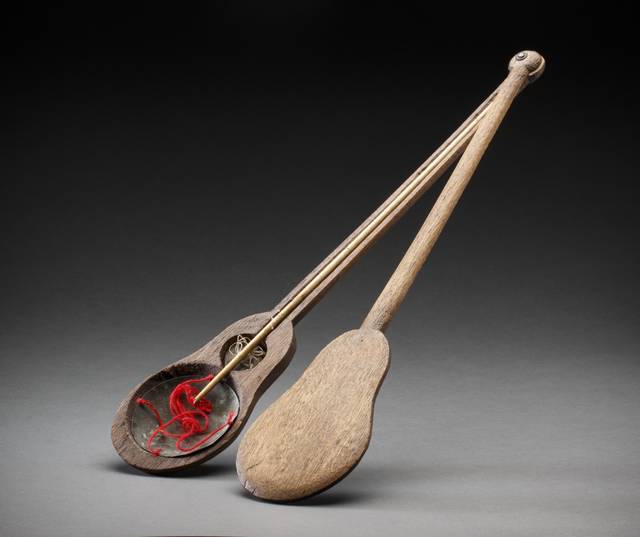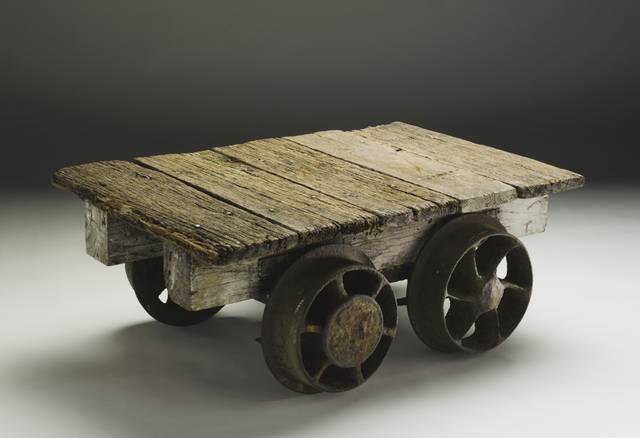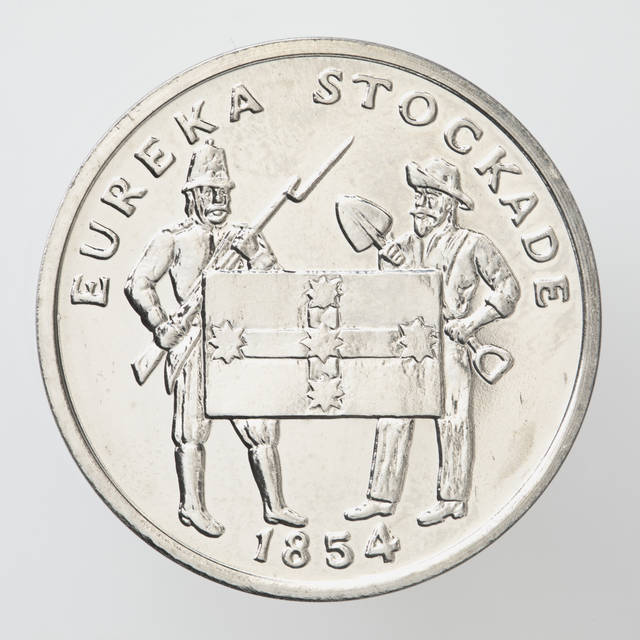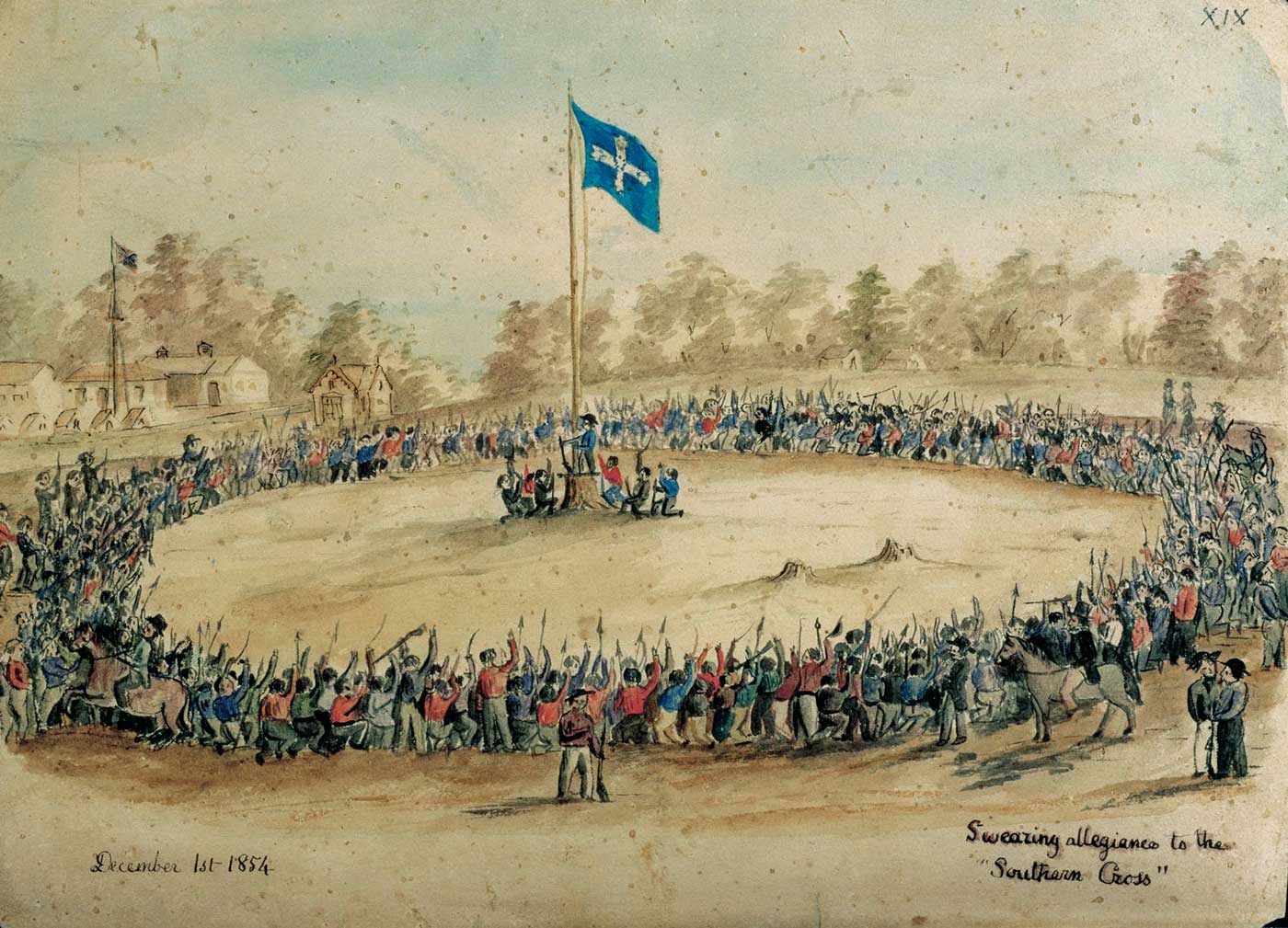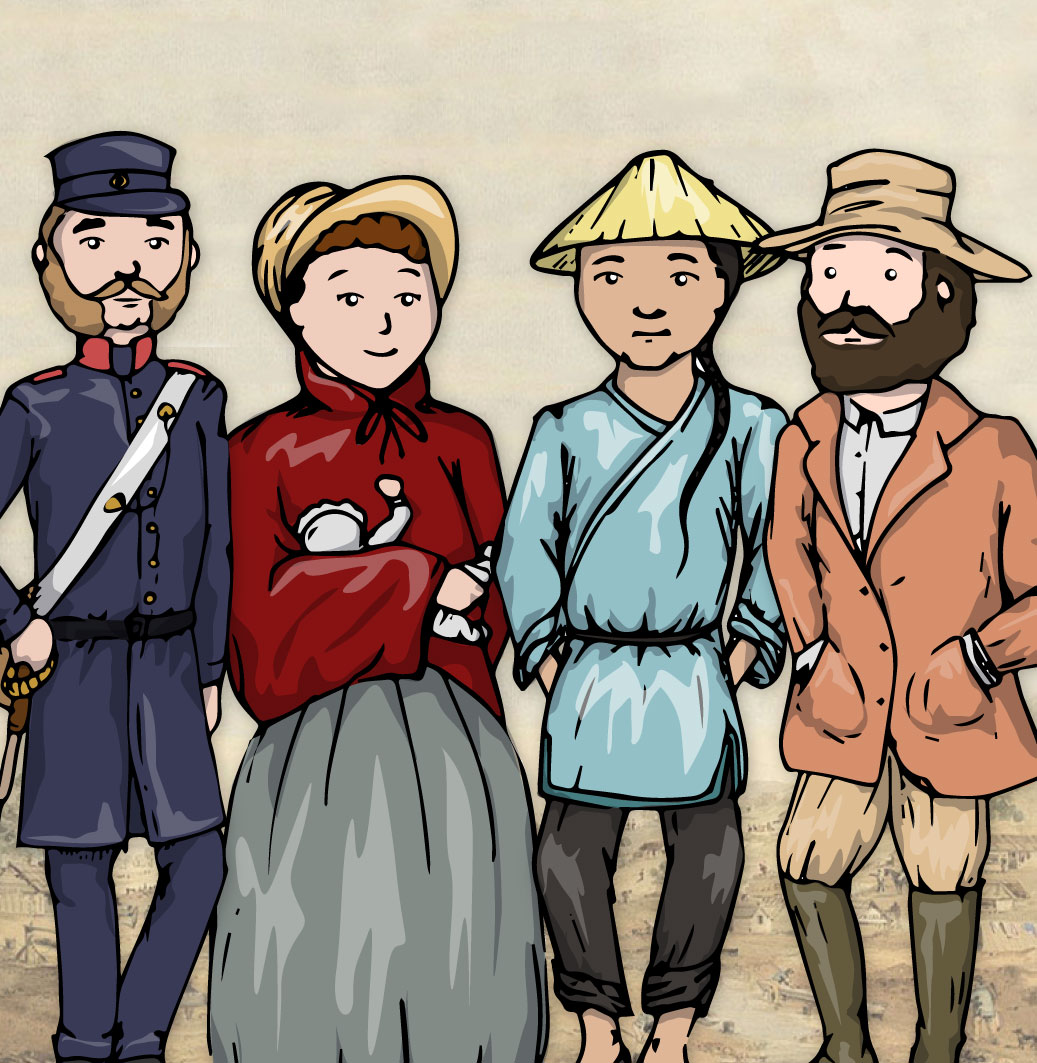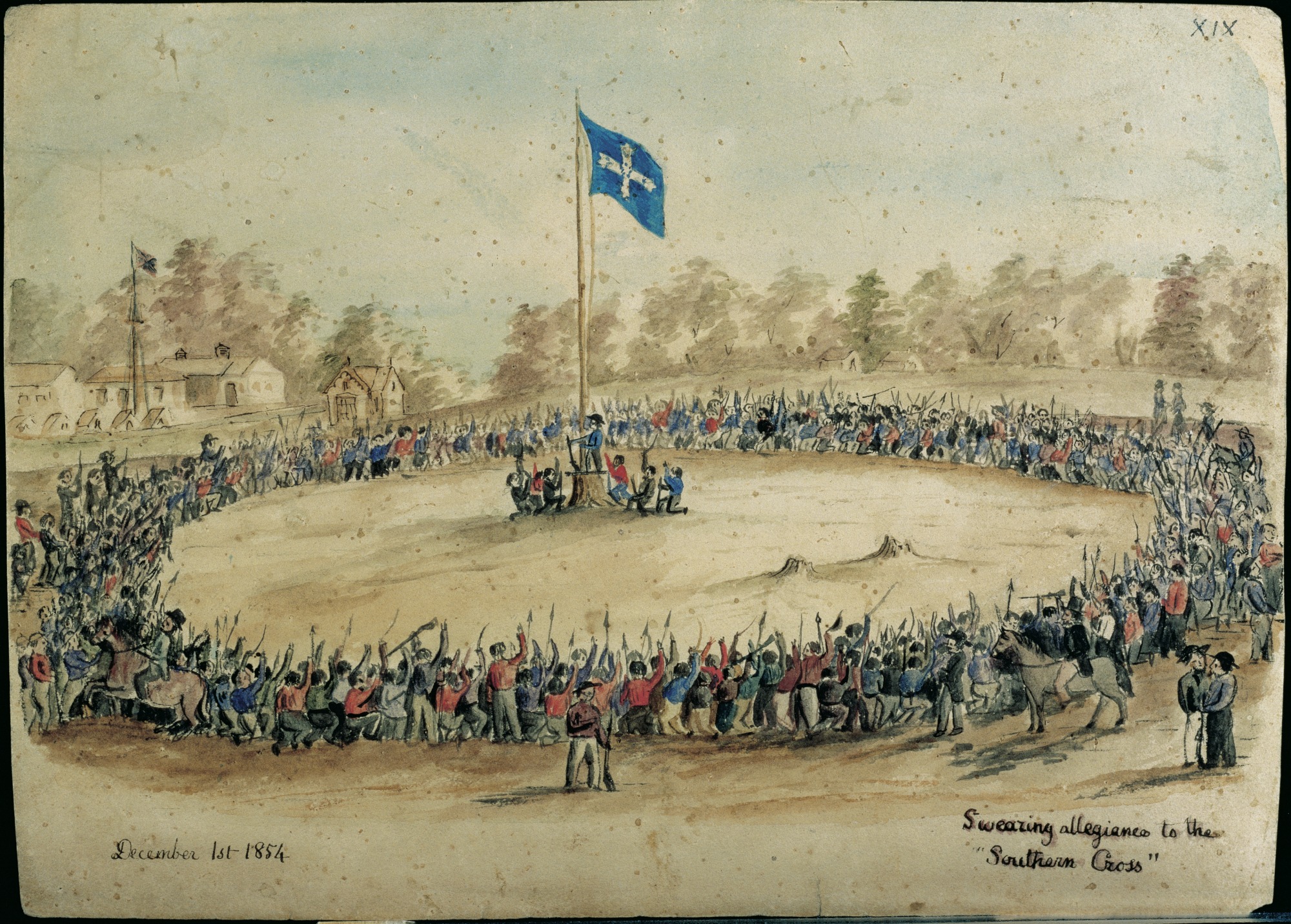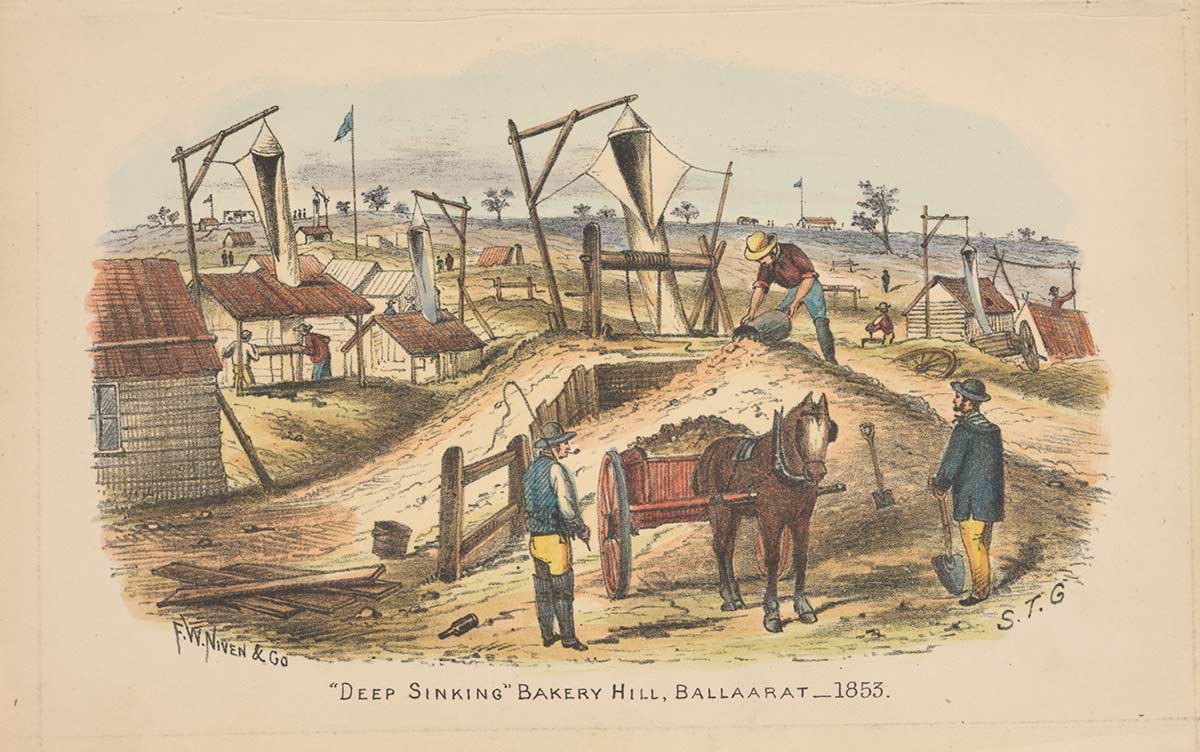Defining Moments: Eureka Stockade
The rebellion at Eureka Stockade in live-sketch animation, as told by historian David Hunt. Note: Five soldiers died at the stockade.
In 1854 goldminers at the Eureka Stockade, Ballarat rebelled against the Victorian government. See this defining moment in Australia’s history brought to life, as told by historian David Hunt.
View transcript
+ -MAN: Eureka, the cradle of Australian democracy where the common folk gathered under the Southern Cross to demand a fair go for all.
WOMAN: Eureka, the cradle of Australian tax avoidance where greedy foreigners gathered under a made-up flag to demand the right to dig up our gold without paying for it.
NARRATOR: Or maybe the truth is somewhere in the middle. In 1853 almost 78,000 migrants joined the Victorian gold rush. Many headed for the boomtown of Ballarat. Some were British democracy campaigners known as Chartists, or had joined the anti-government protests that swept across Europe in 1848. The new arrivals found their democratic hopes dashed. There was no land to buy on the goldfields, and only men who owned significant land, or paid significant rent for a home, could vote. And women, well, they couldn’t vote at all. Yet diggers had to pay for a gold licence, which was a tax. Wasn’t it a British principle that tax-payers should have the vote?
Licence fees funded the goldfields police, who staged digger hunts to arrest miners without licences. The digger hunts were led by James Johnston, the nephew of George Johnston, who’d put down the Irish rebellion at Vinegar Hill in 1804 and led the Rum Rebellion against Governor Bligh in 1808. If you wanted to stage a rebellion in Australia, you needed to invite a Johnston.
The miners’ anti-government sentiment hardened when Ballarat’s magistrates cleared the owner of the Eureka Hotel of murdering a miner. The government’s anti-miner sentiment hardened when miners burned down the hotel, and under the leadership of John Humffray, demanded Governor Hotham release the Arsonists, end the gold licence, and introduce Chartist reforms, including voting rights for all men.
Hotham responded by ordering an additional 150 British troops to Ballarat. Up to 15,000 people gathered at Bakery Hill on the 29th of November. Gold licences were burned, and the Southern Cross flag raised for the first time. Johnston responded with a massive digger hunt. The outraged miners regathered at Bakery Hill, where Peter Lalor, a young Irishman from a prominent nationalist family, stepped forward and said:
PETER: Liberty!
NARRATOR: The miners who wanted to fight back chose Lalor as their leader, took the flag to Eureka Flat and built a ramshackle stockade. Lalor instructed blacksmiths to forge pikes, and chose Vinegar Hill, associated with Irish nationalist defeats in Ireland and Australia, as the rebels’ password. Lalor encouraged the miners to swear an oath.
PETER: We swear by the Southern Cross, to truly stand by each other, and defend our rights and liberties.
NARRATOR: In the early hours of Sunday, the 3rd of December 1854, almost 300 soldiers and police stormed the stockade. It was undermanned as nobody anticipated an attack on the Lord’s Day. The 150 rebels were completely outgunned, particularly as some of their firearms were theatre props. The Battle of the Eureka Stockade lasted only 15 minutes, with at least 22 diggers, including one woman, and six soldiers losing their lives. Peter Lalor with an injured arm that would require amputation, escaped in the confusion. Two other rebel leaders escaped in dresses. 13 miners were charged with treason.
The Government may have won the battle, but it lost the war, as Victorians overwhelmingly supported the defeated miners. The rebels were acquitted of treason and the gold licence was replaced by a miners’ right, which allowed the diggers to mine, vote and occupy vacant land for a small annual fee. Lalor and Humffray were elected to Victoria’s Legislative Council. The upswell of democratic sentiment following Eureka led to political reforms that you can check out in our videos on the secret ballot and women’s suffrage. Eureka was also a key event in the development of an Australian identity. Let's leave the last word to Clara du Val, who took over her partner’s role as editor of the Ballarat Times after he was arrested for inciting the rebellion.
CLARA: What is this country else but Australia? Is it any more England than it is Ireland or Scotland, France or America, Italy or Germany? Is the population, wealth, intelligence, enterprise and learning wholly and solely English? No, the population of Australia is not English, but Australian. The latest immigrant is the youngest Australian.
NARRATOR: And who can argue with that?
Written and narrated by David Hunt
Video production by Sketch Group
Activities
1. What led gold miners to build a stockade at Eureka Flat near Ballarat?
2. What happened on Sunday 3 December 1854?
3. What does the narrator mean when he says, ‘the government may have won the battle but it lost the war’?








